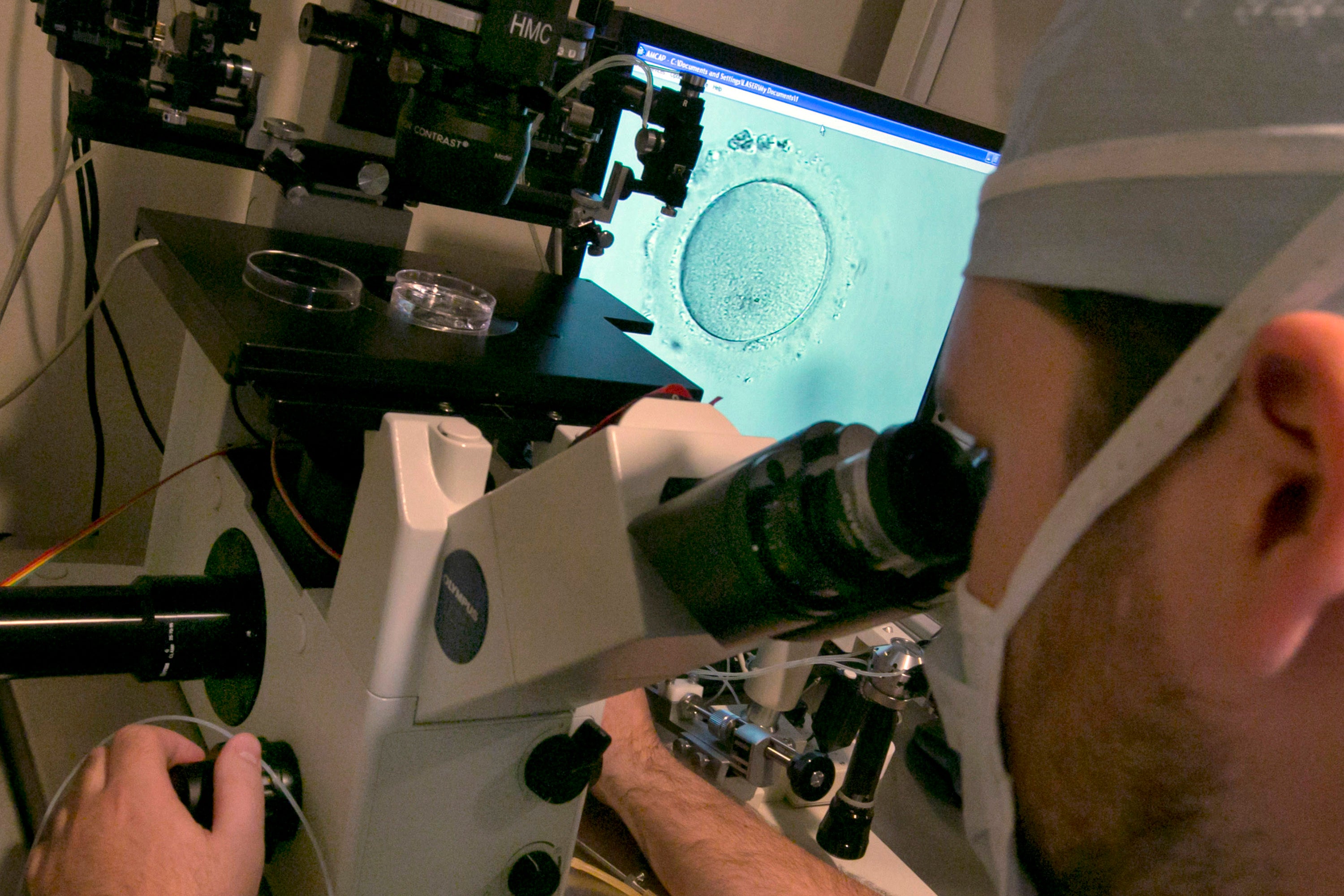Facing backlash over IVF ruling, Alabama lawmakers look for a fix
Alabama lawmakers have begun scrambling for ways to protect in vitro fertilization services after a state Supreme Court ruling that frozen embryos could be considered children under state law

Lawmakers began scrambling for ways to protect Alabama in vitro fertilization services after multiple providers paused services in the wake of a state Supreme Court ruling that frozen embryos could be considered children under a state law.
Facing a wave of shock and anger from the decision, legislators prepared separate proposals in the House and Senate that would seek to prevent a fertilized egg from being recognized as a human life or an unborn child under state laws until it is implanted in a woman's uterus.
Justices ruled last week that three couples who had frozen embryos destroyed in a mishap at a storage facility could pursue wrongful death claims for their “extrauterine children.” Justices cited sweeping language that the GOP-controlled Legislature and voters added to the Alabama Constitution in 2018 saying that the state recognizes the “rights of the unborn child.”
Senate Minority Leader Bobby Singleton, a Democrat, said Republicans helped create the situation in their push to enact some of the most stringent anti-abortion laws in the country. The result, he said, was eliminating a path for people to become parents.
“At the end of the day, the Republican Party has to be responsible for what they have done,” Singleton said.
Former President Donald Trump joined the calls for Alabama lawmakers to act Friday and said he would “strongly support the availability of IVF.”
State Republican lawmakers said they were working on a solution.
“Alabamians strongly believe in protecting the rights of the unborn, but the result of the State Supreme Court ruling denies many couples the opportunity to conceive, which is a direct contradiction," House Speaker Nathaniel Ledbetter said.
Republican state Sen. Tim Melson, who is a doctor, said his proposal seeks to clarify that a fertilized egg is a “potential life" and not a human life until it is implanted in the uterus.
“I’m just trying to come up with a solution for the IVF industry and protect the doctors and still make it available for people who have fertility issues that need to be addressed because they want to have a family,” Melson said.
House Minority Leader Anthony Daniels, a Democrat, introduced legislation to clarify that a “human egg or human embryo that exists in any form outside of the uterus shall not, under any circumstances, be considered an unborn child” under state law.
“This is just the first step in unwinding this predicament our state has placed itself in,” Daniels said.
Melson said he was not surprised that the state is seeing unintended consequences from the constitutional language. Supporters said it was intended to block abortion if the states ever gained control of the issue. But opponents warned it was essentially a “personhood” measure that would establish “constitutional rights for fertilized eggs.”
Alabama Gov. Kay Ivey said the state wants to foster a culture of life and that includes “couples hoping and praying to be parents who utilize IVF.”
Alabama Attorney General Marshall does not intend to prosecute IVF providers or families based on the state Supreme Court ruling, Chief Counsel Katherine Robertson said in a statement.
The court’s ruling, treating the embryos the same as a child or gestating fetus under the wrongful death statute, raised questions about what legal liabilities clinics could face during IVF processes, including the freezing, testing and disposal of embryos. Three in vitro fertilization providers in Alabama paused their services in the aftermath of the ruling.
Gabby Goidel, who was days from an expected egg retrieval appointment, was told Thursday that her provider would not continue doing embryo transfers.
“I started crying,” said Goidel, who swiftly traveled with her husband to Texas to try to continue the IVF cycle with a provider there. The Alabama ruling is “not pro-family in any way,” Goidel said.
At the Fertility Institute of North Alabama, Dr. Brett Davenport said his clinic will continue providing IVF. But he also urged state policymakers to act and remove the uncertainty for providers.
“What we do could not be any more pro-life. We’re trying to help couples who can’t otherwise conceive a child,” Davenport said.
The court ruled only that embryos are covered under Alabama’s wrongful death statute, said Mary Ziegler, a legal historian at the University of California, Davis School of Law. The court did not say embryos had full constitutional rights, she said, or at least not yet.
“I think people in Alabama are rightly expecting that this is the tip of the iceberg though, and this ruling will lead to more down the road,” Ziegler said. She also said anti-abortion groups and politicians have been pushing to get some sort of ruling through the federal courts “that a fetus is a constitutional rights holder.”
“It’s not just about in vitro and it’s not just about Alabama. It’s part of this nationwide movement too,” she said.
Bookmark popover
Removed from bookmarks